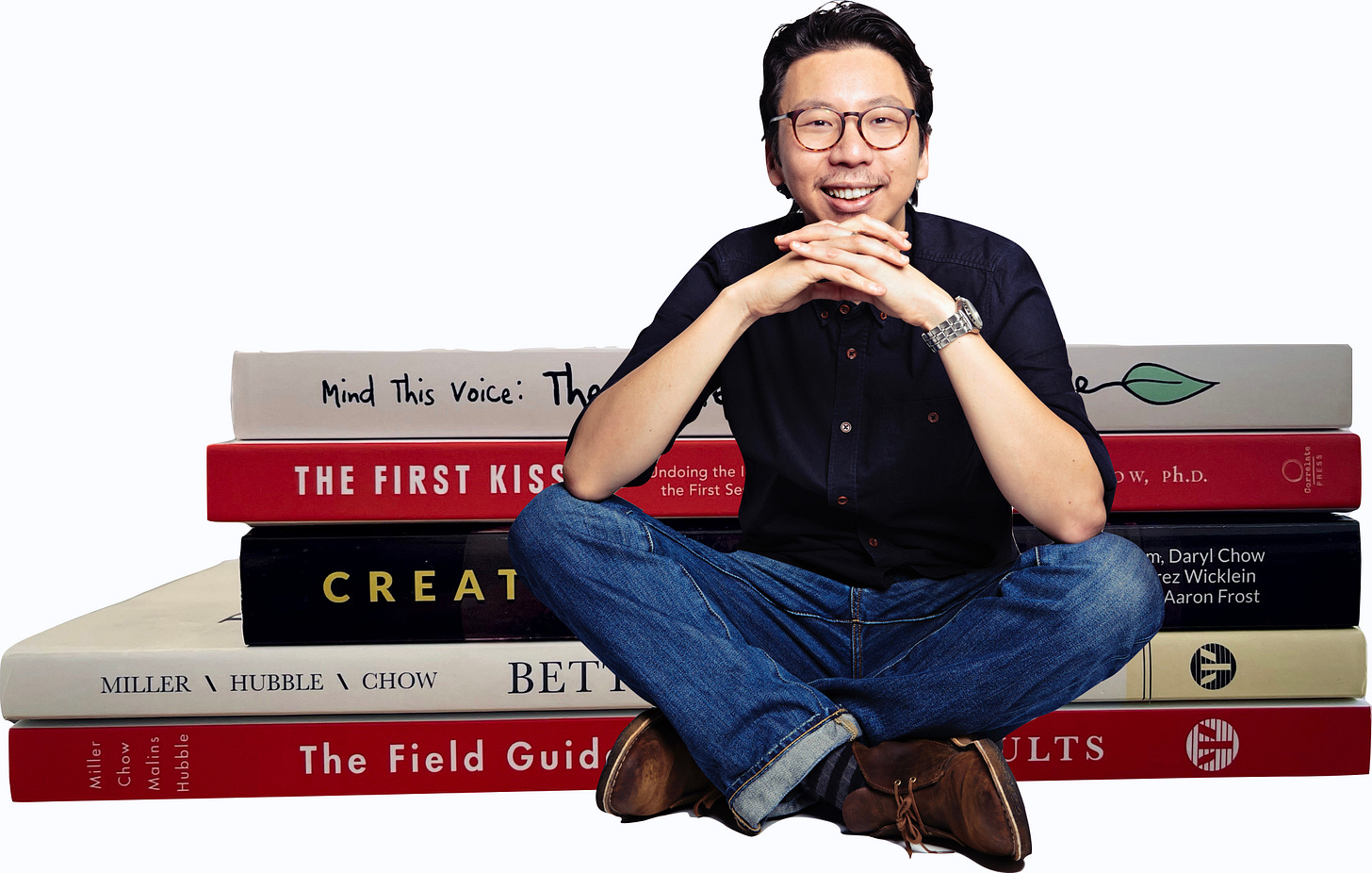Words Worth Contemplating (Part III). Frontiers Friday #167 ⭕️
Before the year is out, words that stood the test of time.
Just got back from Singapore. The humidity is like taking a stroll with a 12kg vest. I’m not sure how I got used to that.
We celebrated my father’s 80th, did a cruise with my wife’s sister’s family (first time), went to Johor Bahru because things are cheaper across the causeway I guess, and met up with some friends I’ve missed…
Today, I’m thinking about people who had to leave their country due to circumstances. Like Tony Chung, 22 years of age, fled Hong Kong to seek asylum in UK, or Agnes Chow, who jumped bail to stay in Canada because HK has become a “place full of fear.”
I found myself thinking about democracy and free speech in the past few months. Coming from Singapore, a meritocratic, one-party rule country, in the past forty plus years of my life, I had not fully contemplated the question of a democratic society. I see this as relevant for psychotherapists to be aware, or at the very least, not naive about the political impact this has on individuals and families. We must be willing to climb the ladder of abstraction, from the political to spiritual, and from the societal to the individual.
Peter Emerson points out that most people think that democracy is the majority of rule. Emerson argues, that majority voting, in fact, is one of the most inaccurate measures of collective opinion, not least because of the logic:
That if you have a multi-option debate, then to take only a two-option vote is, well, unwise, if not crazy.
People ask these terrible closed questions: Are you Serb or Croat? Sunni or Shia? Arab or Jew? Hutu or Tutsi? But it’s the same in ordinary politics: Are you for or against? Left wing or right? Communist or capitalist?
In other words, the way we ask the question, has huge consequences.
I’m awaiting for Emerson book, The Punters' Guide to Democracy to arrive in the mail. More on that in the future.
If you as a psychotherapist, and have been impacted by the political with the individuals you’ve worked with, I love to hear from you about this.
Onward with this year’s final newsletter.
FF167: Words Worth Contemplating (Part III)
“Are you sharpening pencils, or are you creating art?”
~ Richie Norton, from Anti-Time Management.
Preparation and planning are at times guises of procrastination.
Note to self: Pick up the metaphorical pencil, and just begin—for at least 20mins. If the pencil is blunt by then, quickly sharpen, and keep going.
The inversion of this quote: "If I had eight hours to chop down a tree, I'd spend six sharpening my axe." ~ attributed to Abraham Lincoln."The body doesn't keep the score. Your brain keeps the score. Your body is the score."
~ Lisa Feldman Barrett, from Dialogue on Munk Debates.
A popular phrase coined by the Bessel van der Kolk's book on trauma, The Body Keeps Score.
In this interview, Feldman Barrett explains why the popular phrase might not be entirely accurate (listen around 18mins for of the podcast for this segment)"You waste years by not being able to waste hours."
~ Amos Tversky
The full quote: “The secret to doing good research is always to be a little underemployed. You waste years by not being able to waste hours.”
Idleness is a rarity these days. Yet, it is an important feature for us to keep and protect a sense of spaciousness; to empty ourselves from the constant consumption of inputs. Especially from a visual perspective, by zooming out instead of a narrow tight focus onto our screens, allows us to psychologically "see" the wider stories of our times. As it turns out, looking far after starring at the screen for a long bout is not just good for our eyes."Don't treat yourself as a self-improvement project, but you treat yourself and the world as a source of revelation."
~ from David Whyte, What to Remember When Waking audio series.
It's easy for one to assume, especially if you are psychotherapist, that our work is to help others self-improve.
This is not just semantics. I think this can have an unintended consequence of making one feel an eternal nagging feeling of 'not enough.' Instead, our task is to discover in a deep way, who we really are, and bring our gifts to bear. In other words, we must close in our natures, so that we can nurture our nature.
On this point, I recommend Danish philosopher Svend Brinkmann's book, Stand Firm."People are just as wonderful as sunsets if i can let them be. In fact, perhaps the reason we can truly appreciate a sunset is that we cannot control it... I watch it with awe as it unfolds. I like myself best when i can appreciate my staff member, my son, my daughter, my grandchildren, in this same way."
~ Carl Rogers, A Way Of Being, pp.22-23
I keep returning to this passage at different points in my life, to love and embrace the people in my live as they are, not as I want them to be.
Maybe I keep needing to be reminded of this because of my naive insistence, my fight within, for things to be different.
"... Perhaps the reason we can truly appreciate a sunset is that we cannot control it."1
Reflection
May this season be one of renewal and reminder of all that is specifically precious to you. Each morning when you wake, Let the particularity of those people and places, run you ahead or behind that no one can take away from you.
Daryl Chow Ph.D. is the author of The First Kiss, co-author of Better Results, The Write to Recovery, Creating Impact, and the latest book The Field Guide to Better Results.
I watched a documentary of the Nashville musician Jason Isbell, Running With Our Eyes Closed. I was deeply moved by the challenges he faced growing up as a single child, his relationship with fellow musician and wife, Amanda Shires, and wrestling with his shadows manifested in alcoholism. When talking about his craft, he said, “When you are creating, you are not in control.” As a society, as opposed to control, we under-value the art of surrender.




Hi Daryl, One of the qualities I appreciate about you, which is reflected in your writing, is the way in which you ask deceptively simple questions which stimulate a complex of responses in me. By saying you’ve been thinking about democracy and free speech and then asking whether and how psychotherapists have been impacted by the political environment with our clients. Sadly, my answer to your question is a concerned “yes”, I have been impacted. And these impacts involve not only my clients, but also my supervisees and my fellow therapists. Because I wrote over 2,000 words about this, I don't want to clog up your comments section. It's called "How an inverted world view has impacted my work as a psychotherapist" & is in my Substack https://vivianbaruch.substack.com/p/how-an-inverted-world-view-has-impacted